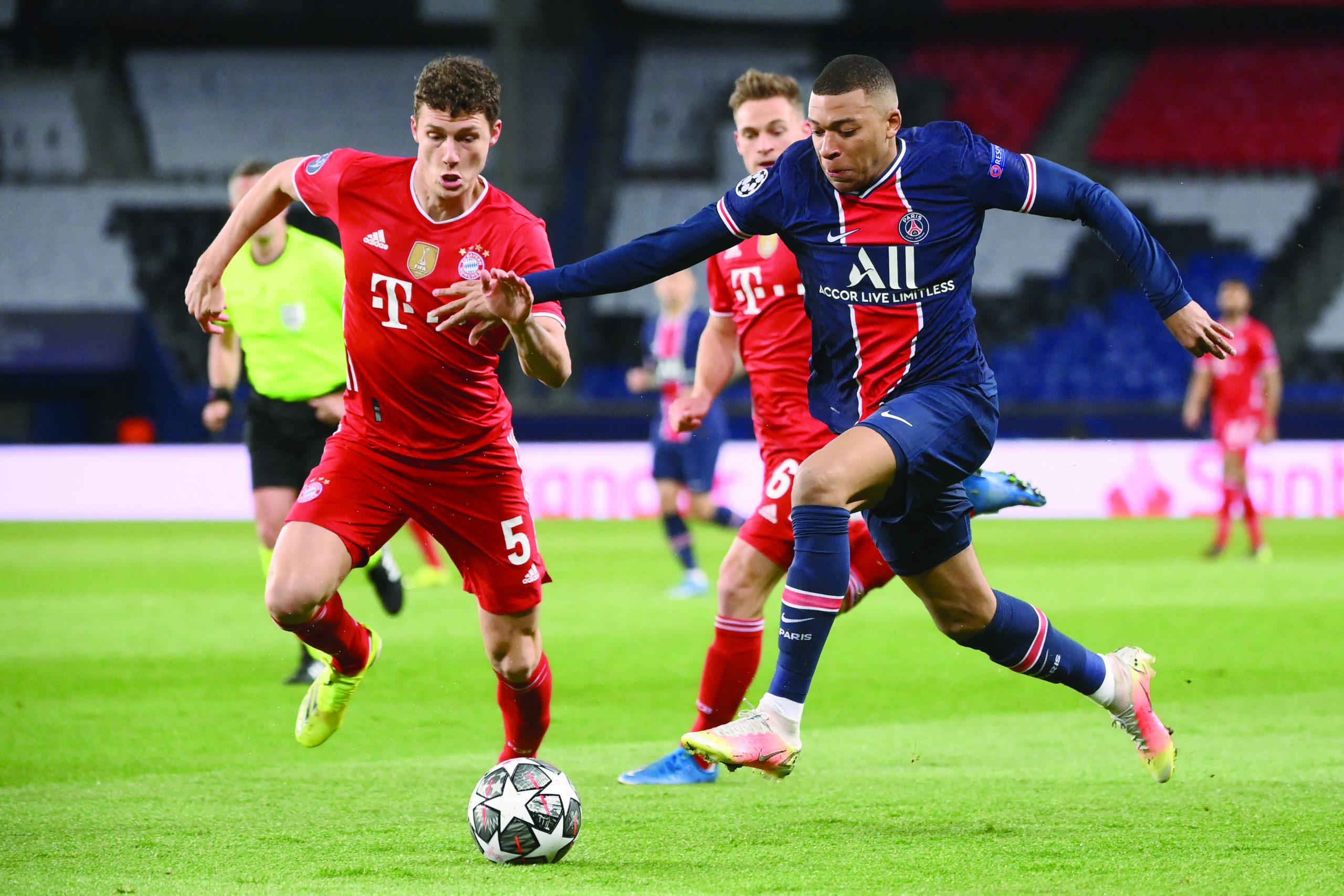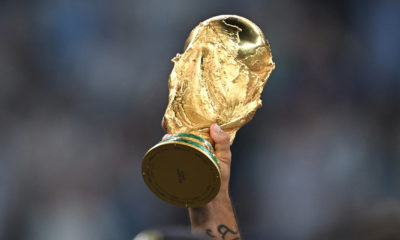
Football has changed for the better. In the 1980s, it was open season on artists like Diego Maradona, with foul specialists sent in to stop him. You can watch the clips on YouTube, and be horrified. The end, back then, justified all means.
Today, tripping and brutal tackles are heavily penalised, and such fouls have all but disappeared. The international football community agreed on the stricter approach in a transparent process. Players must now play fair, and fouls are seen as a last resort.
These days, the end is justified by the means. For this development, from which I profited as a player, I would like to thank all those involved.
This example shows how important it is to establish rules that take everyone’s interests into account. It has proven extremely beneficial to our sport, particularly in international matches. It has allowed the Champions League to transform into a scintillating competition.
With the Champions League semi-finalists decided last week, let’s take a brief moment to consider: Why do we even play football? For fame, glory, success – financial success as well – for entertainment and for spectacle.
More than anything, though, it teaches us to cooperate and collaborate with others.
A shared set of rules is of particular importance. In football, that means: two goals set up on a rectangular field. Only one player is allowed to pick the ball up with their hands. The same offsides rules apply to FC Porto and to FC Chelsea.
If the referee misses a penalty for the Hungarians, all fans find it just as unfair as they would if it happened to the Swedes. The fact that adjustments must constantly be made can be seen by the currently inconsistent application of the rules governing handballs and by the discussion over Financial Fair Play. There will never be absolute equity.
There are also, of course, rules in basketball, table tennis and the Eurovision Song Contest. But the impact of football is greater.
This global sport that fills stadiums around the world offers unique opportunities for encounters far beyond one’s own national borders.
People everywhere play the game or participate as fans, whether it’s the Champions League final in May or the European Championships in the summer. And these two formats – that of national teams and club teams – complement and benefit each other.
Football is the most popular sport in 120 countries around the world, and there is hardly a European country in which it isn’t ranked number one.
When it comes to football, all others measure themselves against our continent. The last time the world champion didn’t come from Europe was 2002. And European club football is the Silicon Valley of the sport.
The brand names aren’t Facebook, Amazon and Google, but Real, Juventus, PSG, Arsenal, Barca, FC Bayern, Manchester City and Manchester United. Through digitalisation and globalisation, they have developed worldwide communities.
Football elite
Fans of Bayern can be found just as easily in Shanghai as in Oberpfaffenhofen. Because their markets have been rapidly expanding for several years, these top brands have turned into monopolies of sorts, a status that will only become more entrenched in the years to come.
Once again, five of the eight teams in this year’s Champions League quarter finals came from England and Germany, the two strongest leagues financially.
Which brings us to an issue that also needs attention: Who is allowed to participate?
In recent years, the biggest teams have voiced a desire to create a super league of the 16 to 20 strongest clubs in Europe. Resistance to that idea is born out of concerns that it would establish a football elite.
On the other hand, though, clubs and players would like to compete with their equals. The founding of the Bundesliga in 1963 was accompanied by similar concerns, but it became a great success.
Just as I am a fan (leaving aside the pandemic for a moment) of the concept behind holding the European Championships in 12 European cities, I quite like the cosmopolitan idea underpinning a Europe league.
At the moment, clubs from only five or six countries would participate – namely the established teams from Madrid, Manchester, Munich, Paris and London.
But just as players from Istanbul, Warsaw and Bratislava get their shot in the Euro 2021, would it not be better to include teams from Bruges, St Petersburg, Athens, Copenhagen and Prague in a Europe league?
Investors are interested in such attractive locations. It should also not be forgotten that the EU was initially launched in the 1950s with just six countries.
The top beneficiaries of current developments, the top brands, bear a significant share of the responsibility. In my role as tournament director of Euro 2024 and in my new column, which appears in many different countries and languages, I would like to take part in this debate.
Critical participation from fans and the media is helpful. Europe is the continent of the Enlightment, and football can make a small contribution to the strengthening of democracy.
Every country, every club should preserve, or even emphasise, its own identity and distinguishing characteristics. Cultural particularities enrich the whole. Italian football has different strengths than the game played in Spain, England or Germany.
Our continent has brought forth champions from places as different from each other as Denmark, Greece, the Netherlands, Czechoslovakia, the Soviet Union, and Portugal.
In 2018 Croatia reached the World Cup final. Poland, Hungary and Austria have all taken their turn at the top of European football.
Ajax Amsterdam, Dynamo Kyiv, Red Star Belgrade, SL Benfica and MTK Budapest have achieved glory in the past. Football greats have come from Bulgaria, Finland, Romania, Wales and Norway.
Diversity is Europe’s strength.
Philipp Lahm is the tournament director for Euro 2024. His “Views of a footballer” column will appear regularly in The Sunday Times of Malta. It is produced in partnership with Oliver Fritsch at Zeit Online, the German online magazine, and is being published in several European countries.

World Cup News
-
FIFA World Cup
/ 6 days agoSaudi oil giant Aramco agrees major FIFA sponsorship deal
Saudi Arabia’s state oil giant Aramco and world football governing body FIFA on Thursday...
By AFP -
FIFA World Cup
/ 1 month agoSon scores but Thailand hold South Korea in World Cup qualifier
Son Heung-min scored but South Korea were held 1-1 at home by Thailand in...
By AFP -
FIFA World Cup
/ 2 months agoJapan-N. Korea World Cup game to stay in Pyongyang, JFA says
Japan’s World Cup qualifier against North Korea will be played in Pyongyang as planned...
By AFP -
FIFA World Cup
/ 2 months agoGerman ex-FA bosses on trial over World Cup tax evasion
Three German ex-top football officials went on trial on Monday in a 13.7-million-euro ($14.8...
By AFP

Winter Olympics
Watch: Geisenberger wins sixth Olympic medal to tie luge record


































